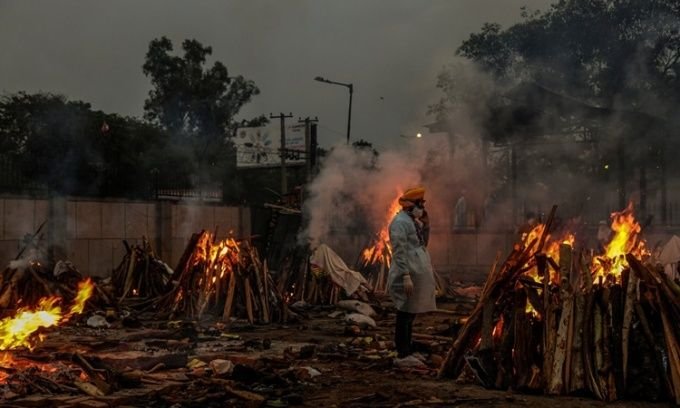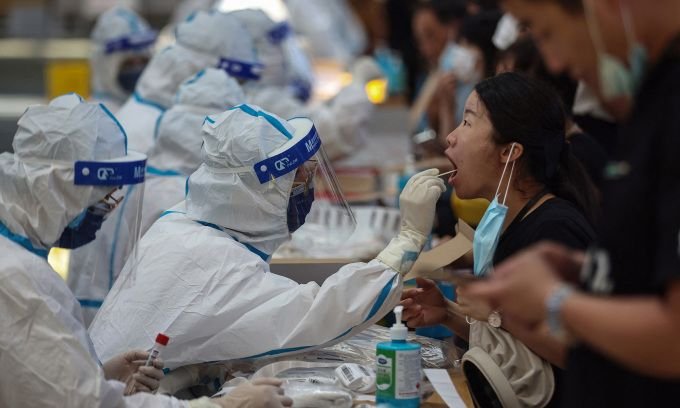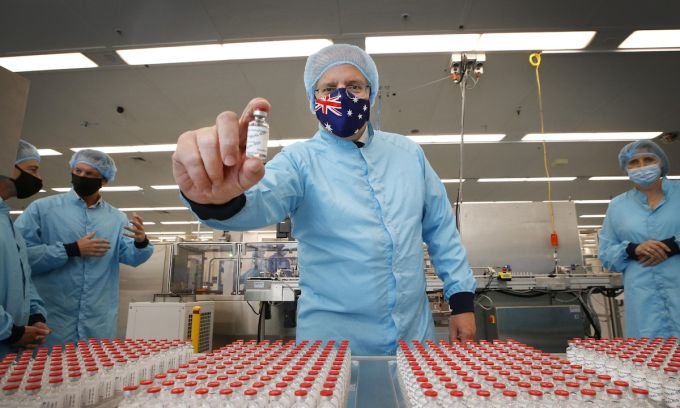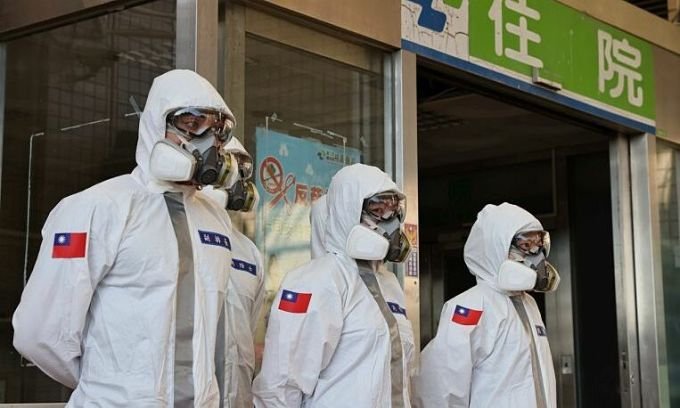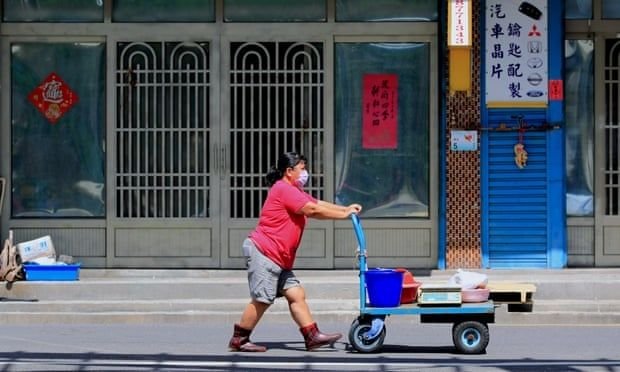After Covid-19 patients die at home, their bodies are lazily picked up by volunteers, transferred to medical staff to load into ambulances or transported by relatives on carts to the crematorium.
At the cremation ground, where the fire only goes out late at night, relatives wait for hours for their turn to say goodbye.
Red pyres inside the Seemapuri cremation ground.
Local residents recorded cremations from rooftops to show the world why they must wear masks even in their homes.
Traditionally, when someone passes away, relatives will gather together to share their sadness.
`I couldn’t even show my family members those last moments,` said Mittain Panani, a 46-year-old businessman.
`You can have everything: Money, power, influence. But even with all that, you still can’t do anything. It feels so painful,` Panani said.
The virus spread so quickly that no corner of India was left untouched.
`Before the epidemic, I used to receive 6-8 bodies a day,` said Jitender Singh Shunty, founder of a volunteer organization running the Seemapuri cremation ground in east New Delhi.
Through his organization, Shunty has provided cheap, even free, cremation services to the poor for the past 25 years.
According to Hindu tradition, cremation is the preferred burial method for the dead, helping the soul to escape the `mortal body`.
`But there are still 16 of us left and we are still working day and night,` Shunty said.
After completing the cremation ceremony, relatives are instructed to retrieve the ashes immediately to avoid confusion.

Relatives performed the last rites before putting the deceased on the funeral pyre at the Seemapuri cremation ground on May 6.
`Fire rose from the funeral pyres, everyone wore protective gear and the bodies were wrapped in plastic bags. It felt like the end of the world,` described film producer Dimple Kharbanda.
Dharamvir Kharbanda, Dimple’s father, a retired businessman, was not infected with Covid-19 but his funeral rites were also canceled because of the pandemic.
`When someone dies in India, we used to gather and talk about them, their life, their habits, their good things. Now, even this we cannot do. When I
For families of Covid-19 victims, cremation can be the final stop of a difficult ordeal, after they had to take their family members from one hospital to another to find a place to die.
Before the body of Darwan Singh, 56, was taken to the Seemapuri cremation ground, his family did everything to save him from death.
When he was found, he was given oxygen for about an hour before the hospital ran out of supplies.
Because the Seemapuri cremation ground was full, the hospital could not immediately hand over the body.
Rawat said he had to get into the ambulance to identify his uncle, then took him inside the crematorium, where they had to wait five hours before it was their turn.
Singh’s mother, wife, daughter and son were all infected with Covid-19, so they couldn’t come and say goodbye to him, but could only watch over the phone. `I’m still quarantined now,` Rawat said, fearing that he had been infected.
For families living around crematoriums, witnessing black smoke rising every day can’t help but make them feel haunted and their minds always lurking with the question: `When will it be my turn?`

People living near the Seemapuri cremation ground must wear masks even indoors.
At the Sunlight Colony residential area next to the Seemapuri cremation ground, people must wear masks even when indoors.
`Our kitchen is upstairs but it’s unbearable to be in there,` said Waseem Qureishi, a resident of nearby Seemapuri.
Anuj Bhansal, an ambulance driver who lives near Ghazipur crematorium, also east of the capital New Delhi, said he was very worried about his four children.
According to him, cremations in Ghazipur have reached 100 per day.
Vu Hoang (According to NYTimes)






